-
 bitcoin
bitcoin $87959.907984 USD
1.34% -
 ethereum
ethereum $2920.497338 USD
3.04% -
 tether
tether $0.999775 USD
0.00% -
 xrp
xrp $2.237324 USD
8.12% -
 bnb
bnb $860.243768 USD
0.90% -
 solana
solana $138.089498 USD
5.43% -
 usd-coin
usd-coin $0.999807 USD
0.01% -
 tron
tron $0.272801 USD
-1.53% -
 dogecoin
dogecoin $0.150904 USD
2.96% -
 cardano
cardano $0.421635 USD
1.97% -
 hyperliquid
hyperliquid $32.152445 USD
2.23% -
 bitcoin-cash
bitcoin-cash $533.301069 USD
-1.94% -
 chainlink
chainlink $12.953417 USD
2.68% -
 unus-sed-leo
unus-sed-leo $9.535951 USD
0.73% -
 zcash
zcash $521.483386 USD
-2.87%
How much does it cost to deploy a smart contract?
Deploying a smart contract involves gas fees, network congestion, and code complexity, with costs varying across blockchains like Ethereum, BSC, and Polygon.
Jul 26, 2025 at 04:01 am
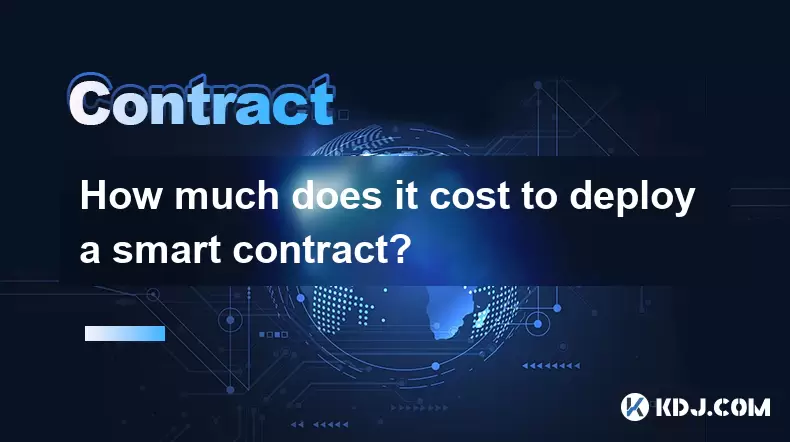
Factors Influencing Smart Contract Deployment Costs
Deploying a smart contract on a blockchain network involves several cost factors that users must consider. Gas fees are the most significant contributor to the total expense. These fees are paid in the native cryptocurrency of the blockchain—such as Ether (ETH) on Ethereum—and are used to compensate network validators for computational resources. The complexity of the contract also plays a crucial role. A contract with more functions, loops, and data storage requirements will consume more gas, thereby increasing the cost.
Another important factor is network congestion. During peak usage times, the demand for block space increases, which drives up gas prices. Users can monitor tools like Etherscan Gas Tracker or GasNow to estimate current gas prices. Gas price settings also affect deployment costs. Users can set a maximum gas price (gasPrice) and a gas limit (gasLimit), which together determine the total fee. Choosing a higher gas price may result in faster transaction confirmation but at a higher cost.
Understanding Gas Fees and Their Calculation
To understand how much it costs to deploy a smart contract, it's essential to break down gas fees and how they are calculated. Gas is the unit used to measure the computational effort required to execute operations on the blockchain. Each line of code in a smart contract consumes a specific amount of gas. For example, a simple variable assignment may cost 3 gas, while a complex cryptographic function may cost thousands of gas units.
The total cost is calculated using the formula:Total Cost = Gas Used × Gas Price
Where:
- Gas Used is determined by the complexity of the contract.
- Gas Price is set by the user in Gwei (1 Gwei = 0.000000001 ETH).
To estimate gas usage, developers can use tools like Remix IDE, which provides a gas estimation feature before deployment. This helps in setting an appropriate gas limit to avoid failed transactions due to insufficient gas.
Smart Contract Development and Testing Costs
Before deployment, developers must write, test, and optimize the smart contract. While writing the contract doesn’t incur direct blockchain costs, it may involve hiring developers or using development tools. Open-source tools like Solidity, Truffle, and Hardhat are free, but professional development services can cost hundreds to thousands of dollars depending on the project scope.
Testing is another critical phase that involves deploying the contract to a testnet like Ropsten, Rinkeby, or Goerli. These networks simulate the mainnet environment without using real funds. However, developers still need to pay test ETH, which can be obtained for free from faucets. Testing ensures that the contract behaves as expected and reduces the risk of costly errors during mainnet deployment.
Auditing services are also a consideration. Security audits by firms like CertiK, OpenZeppelin, or PeckShield can cost $5,000 to $50,000+, depending on the contract’s complexity. This is an optional but highly recommended step to ensure code integrity and prevent vulnerabilities.
Deployment Costs on Different Blockchains
The cost of deploying a smart contract varies significantly across different blockchain platforms. Ethereum remains the most popular but also the most expensive due to high gas fees. A simple contract deployment on Ethereum can cost $50 to $200+, depending on network conditions.
Binance Smart Chain (BSC) offers lower fees, with deployment costs typically ranging from $1 to $10. However, BSC has fewer decentralized applications and lower security compared to Ethereum.
Polygon (Matic) and Arbitrum offer Layer 2 scaling solutions that reduce gas costs while maintaining compatibility with Ethereum. Deployment on these networks can cost less than $1.
Other blockchains like Solana, Avalanche, and Fantom also provide smart contract capabilities with varying fee structures. Developers should choose a network based on security, ecosystem maturity, and target audience rather than cost alone.
Optimization Techniques to Reduce Deployment Costs
Optimizing a smart contract before deployment can significantly reduce gas consumption and, therefore, the overall cost. One of the most effective methods is code optimization. Developers should minimize the use of loops, nested conditionals, and state variables, as these consume more gas.
Another strategy is batching transactions. Instead of executing multiple functions separately, developers can combine them into a single function call. This reduces the number of transactions and the associated gas fees.
Using storage efficiently is also crucial. Storing data on-chain is expensive, so developers should avoid unnecessary state changes. They can use mappings and arrays wisely and delete unused data to reclaim gas refunds.
Additionally, compiling with optimization settings in tools like Remix or Truffle can help reduce the final bytecode size. Smaller contracts consume less gas during deployment.
Tools and Platforms for Cost Estimation
Several tools and platforms can help developers estimate deployment costs before executing a transaction. Remix IDE provides a built-in gas estimator that shows the gas required for each function call. Hardhat and Truffle frameworks also offer gas reporting plugins that display gas usage during testing.
Block explorers like Etherscan, BscScan, and Polygonscan allow users to view historical gas prices and transaction costs. These tools help in setting realistic gas price parameters.
Gas calculators such as GasFees.info and Blockchair Gas Calculator provide real-time gas price suggestions based on network congestion. Developers can use this data to time their deployments during low-traffic periods to minimize costs.
Wallets like MetaMask also display gas price options during transaction submission, allowing users to adjust settings manually for cost optimization.
Frequently Asked Questions
Q: Can I deploy a smart contract without paying gas fees?No, deploying a smart contract requires paying gas fees to compensate the network for computational resources. Even on testnets, you need test ETH to simulate gas payments.
Q: How can I reduce gas fees during contract deployment?You can reduce gas fees by optimizing your code, minimizing storage usage, batching transactions, and deploying during off-peak hours when network congestion is low.
Q: What is the difference between gas price and gas limit?Gas price is how much you're willing to pay per unit of gas (in Gwei), while gas limit is the maximum amount of gas you're willing to spend on a transaction. Setting both correctly helps avoid failed transactions or overpayment.
Q: Do all blockchains charge the same for smart contract deployment?No, different blockchains have varying gas fee structures. Ethereum typically has higher fees, while networks like Binance Smart Chain, Polygon, and Arbitrum offer lower-cost alternatives.
Disclaimer:info@kdj.com
The information provided is not trading advice. kdj.com does not assume any responsibility for any investments made based on the information provided in this article. Cryptocurrencies are highly volatile and it is highly recommended that you invest with caution after thorough research!
If you believe that the content used on this website infringes your copyright, please contact us immediately (info@kdj.com) and we will delete it promptly.
- AI Revolutionizes Penny Error Hunting: Unlocking Hidden Coin Value
- 2026-02-04 21:50:02
- Blockchain Evolution: Bitcoin Core Welcomes New Maintainer, Ethereum Explores ERC-8004, and L2s Advance
- 2026-02-04 21:45:01
- Wall Street's Crystal Ball: A Big Bank's Bold Solana 2030 Forecast Amidst Market Swings
- 2026-02-04 22:15:02
- Chiliz Price Takes Flight: Vision 2030 Blueprint Unveils Aggressive Supply Reduction & SportFi Expansion for CHZ
- 2026-02-04 22:10:01
- Bitcoin ETF Jitters? Smart Capital Flocks to HYPER Presale as 'Assets Crash' Narrative Misses the Mark
- 2026-02-04 22:20:01
- Dogecoin's Volatile Dance: Navigating Liquidity and Opportunity in the Meme Coin Frenzy
- 2026-02-04 22:15:02
Related knowledge
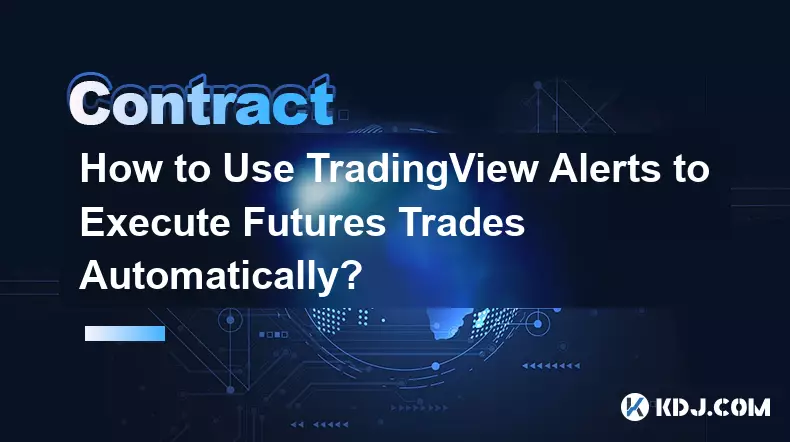
How to Use TradingView Alerts to Execute Futures Trades Automatically?
Feb 04,2026 at 09:00pm
Setting Up TradingView Alerts for Futures Contracts1. Log into your TradingView account and open the chart of the desired futures instrument—such as B...
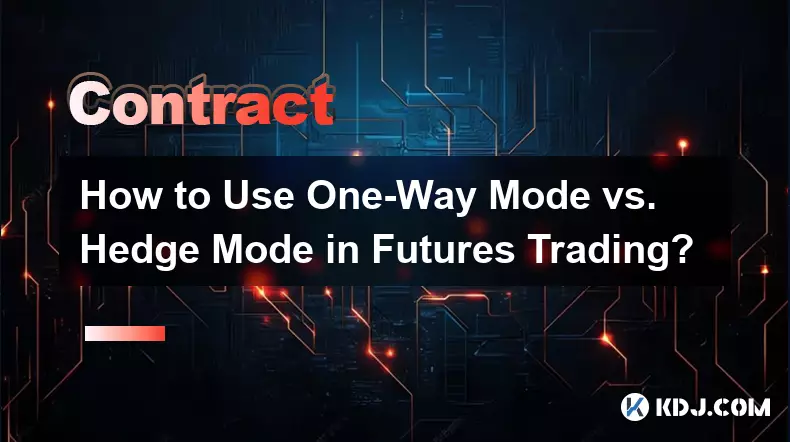
How to Use One-Way Mode vs. Hedge Mode in Futures Trading?
Feb 04,2026 at 06:19pm
Understanding One-Way Mode1. One-way mode establishes a single position direction per asset—either long or short—at any given time. 2. Traders cannot ...
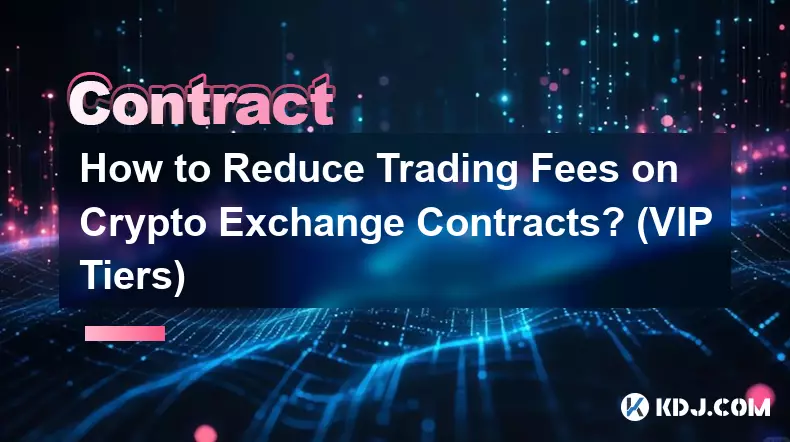
How to Reduce Trading Fees on Crypto Exchange Contracts? (VIP Tiers)
Feb 04,2026 at 10:20pm
VIP Tier Structure and Eligibility Criteria1. Each major crypto exchange implements a tiered VIP system where users qualify based on their 30-day cumu...
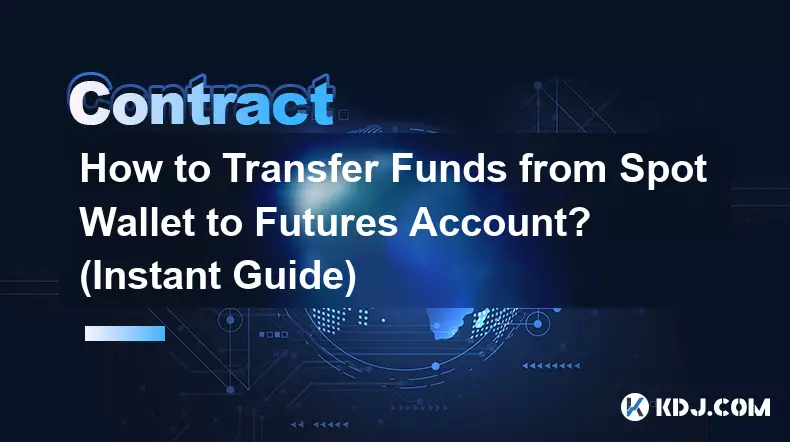
How to Transfer Funds from Spot Wallet to Futures Account? (Instant Guide)
Feb 04,2026 at 06:00pm
Understanding Wallet Separation in Crypto Exchanges1. Spot wallets and futures accounts operate as independent financial containers within most centra...

How to close a crypto contract position manually or automatically?
Feb 01,2026 at 11:19pm
Manual Position Closure Process1. Log into the trading platform where the contract is active and navigate to the 'Positions' or 'Open Orders' tab. 2. ...

How to understand the impact of Bitcoin ETFs on crypto contracts?
Feb 01,2026 at 04:19pm
Bitcoin ETFs and Market Liquidity1. Bitcoin ETFs introduce institutional capital directly into the spot market, increasing order book depth and reduci...

How to Use TradingView Alerts to Execute Futures Trades Automatically?
Feb 04,2026 at 09:00pm
Setting Up TradingView Alerts for Futures Contracts1. Log into your TradingView account and open the chart of the desired futures instrument—such as B...

How to Use One-Way Mode vs. Hedge Mode in Futures Trading?
Feb 04,2026 at 06:19pm
Understanding One-Way Mode1. One-way mode establishes a single position direction per asset—either long or short—at any given time. 2. Traders cannot ...

How to Reduce Trading Fees on Crypto Exchange Contracts? (VIP Tiers)
Feb 04,2026 at 10:20pm
VIP Tier Structure and Eligibility Criteria1. Each major crypto exchange implements a tiered VIP system where users qualify based on their 30-day cumu...

How to Transfer Funds from Spot Wallet to Futures Account? (Instant Guide)
Feb 04,2026 at 06:00pm
Understanding Wallet Separation in Crypto Exchanges1. Spot wallets and futures accounts operate as independent financial containers within most centra...

How to close a crypto contract position manually or automatically?
Feb 01,2026 at 11:19pm
Manual Position Closure Process1. Log into the trading platform where the contract is active and navigate to the 'Positions' or 'Open Orders' tab. 2. ...

How to understand the impact of Bitcoin ETFs on crypto contracts?
Feb 01,2026 at 04:19pm
Bitcoin ETFs and Market Liquidity1. Bitcoin ETFs introduce institutional capital directly into the spot market, increasing order book depth and reduci...
See all articles










































































